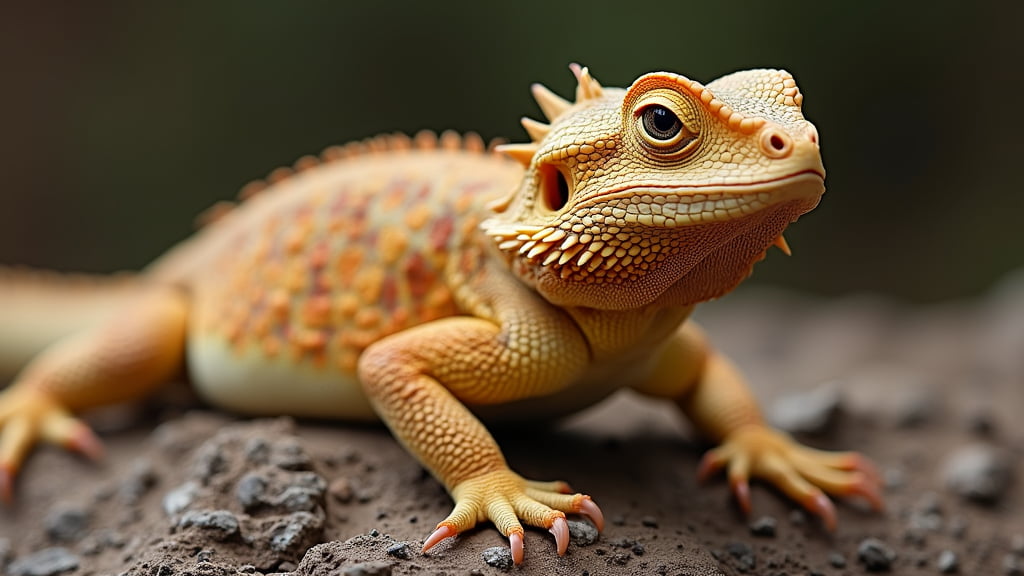Bearded dragons, or “beardies” as they’re affectionately known, are fascinating and rewarding pets. As a long-time owner of these charismatic reptiles, I’ve learnt that their dietary needs can vary quite significantly with the changing seasons. In this blog post, we’ll explore the intricacies of adjusting your bearded dragon’s diet throughout the year to ensure they remain healthy and thriving.
Understanding the Basics of Bearded Dragon Diets
Before diving into the specifics of seasonal diet variations, it’s essential to grasp the foundational elements of a bearded dragon’s diet. Bearded dragons are omnivores, which means they require a balance of both plant and animal matter.
Core Components of a Bearded Dragon’s Diet
- Insects: Crickets, mealworms, and dubia roaches are popular choices.
- Vegetables: Collard greens, mustard greens, and dandelion greens are nutritional powerhouses.
- Fruits: Berries, apples, and mangoes can be offered sparingly.
- Supplements: Calcium and multivitamin supplements support overall health.
Adapting Bearded Dragon Diets to Seasonal Changes
With a firm grasp of the basics, let’s delve into how seasonal variations can influence your bearded dragon’s diet. Adjusting their meals according to the time of year can mimic their natural habitat and ensure they’re getting the right nutrients.
Spring: A Time for Growth
Springtime signals a period of growth and increased activity for bearded dragons, thanks to the longer days and warmer temperatures.
Increased Protein Intake
During spring, beardies typically need more protein to fuel their growth and heightened energy levels.
- Insects: Increase the amount of protein-rich insects such as crickets and dubia roaches. Aim for feeding protein 3-5 times a week.
- Protein Supplements: Dust insects with calcium and a high-quality multivitamin to support healthy bone development and overall growth.
Fresh Greens and Hydration
Spring also brings a plethora of fresh greens, which should make up a significant part of their diet.
- Variety in Greens: Incorporate a diverse mix of leafy greens like collard greens, dandelion greens, and turnip greens.
Summer: Hydration and Balanced Nutrition
Summer’s warm temperatures necessitate a focus on hydration alongside balanced nutrition to prevent dehydration.
Emphasise Hydration and Light Meals
- Water-Rich Vegetables: Include more water-rich vegetables such as cucumbers and bell peppers to maintain hydration levels.
- Fruits: Offer hydrating fruits like watermelon and cantaloupe in moderation, ensuring they don’t comprise more than 10% of the overall diet.
Balanced Diet
Even though the focus is on hydration, a balanced diet remains crucial.
- Consistent Protein: Maintain a steady intake of insects but avoid overfeeding worm-type insects like mealworms, as they are high in fat.
- Daily Greens: Continually offer a varied assortment of greens and vegetables to ensure a balanced intake of nutrients.
Autumn: Preparing for Brumation
Autumn is the transitional period where bearded dragons prepare for a state of brumation, a process similar to hibernation.
Gradual Reduction in Food Intake
As the weather cools and daylight hours decrease, your bearded dragon will naturally reduce its food intake.
- Decreased Protein: Gradually decrease the protein sources, as their metabolic rate slows down.
- Smaller Portions: Offer smaller portions of greens and vegetables to suit their lowered appetite.
Monitoring Health
During this period, keep a close watch on their health and weight to ensure they are coping well with the dietary changes.
- Regular Checks: Regularly monitor their weight and hydration levels.
- Supplement Continuation: Continue to offer calcium and multivitamin supplements, albeit in reduced frequency.
Winter: Managing Brumation
Brumation often occurs during winter, where your bearded dragon will exhibit very little activity and vastly reduced food intake.
Minimal Feeding
- Reduced Diet: During brumation, your beardie may not eat at all for weeks. Offer small amounts of food but don’t be alarmed if they are not consumed.
- Water Access: Ensure that fresh water is always available to prevent dehydration.
Health Monitoring
Keep an eye on health indicators even if they are not eating much.
- Regular Vet Visits: Consult your vet if you notice any drastic changes in their weight or health status.
- Temperature Regulation: Maintain proper tank temperatures to facilitate a healthy brumation process.
Conclusion: Seasonal Adjustments for a Happy, Healthy Beardie
By understanding and adapting to the seasonal dietary needs of your bearded dragon, you can ensure they stay healthy, happy, and thriving year-round. Each season brings unique requirements, and being attuned to these changes will make you a more effective and responsible pet owner. Always remember, in matters of health and significant dietary changes, it is best to consult with a vet knowledgeable in reptile care.
Meta Description: Learn how to adjust the diet of your bearded dragon according to the seasons. From increased protein intake in spring to managing winter brumation, discover expert tips to keep your beardie healthy year-round!
For more detailed care tips, visit our comprehensive Bearded Dragon Diet Guide.
Stay tuned, and happy beardie keeping!

